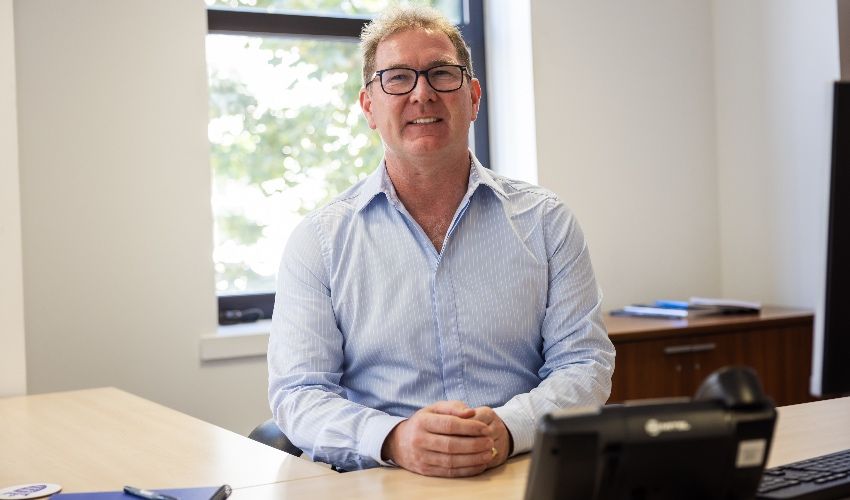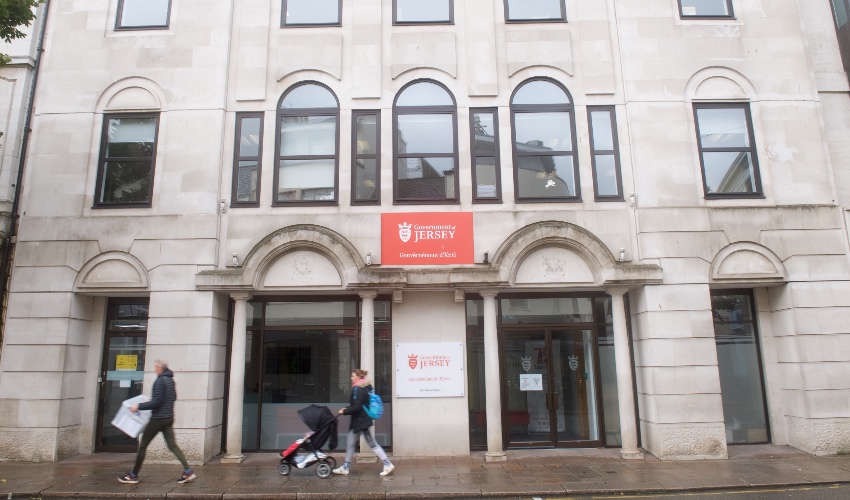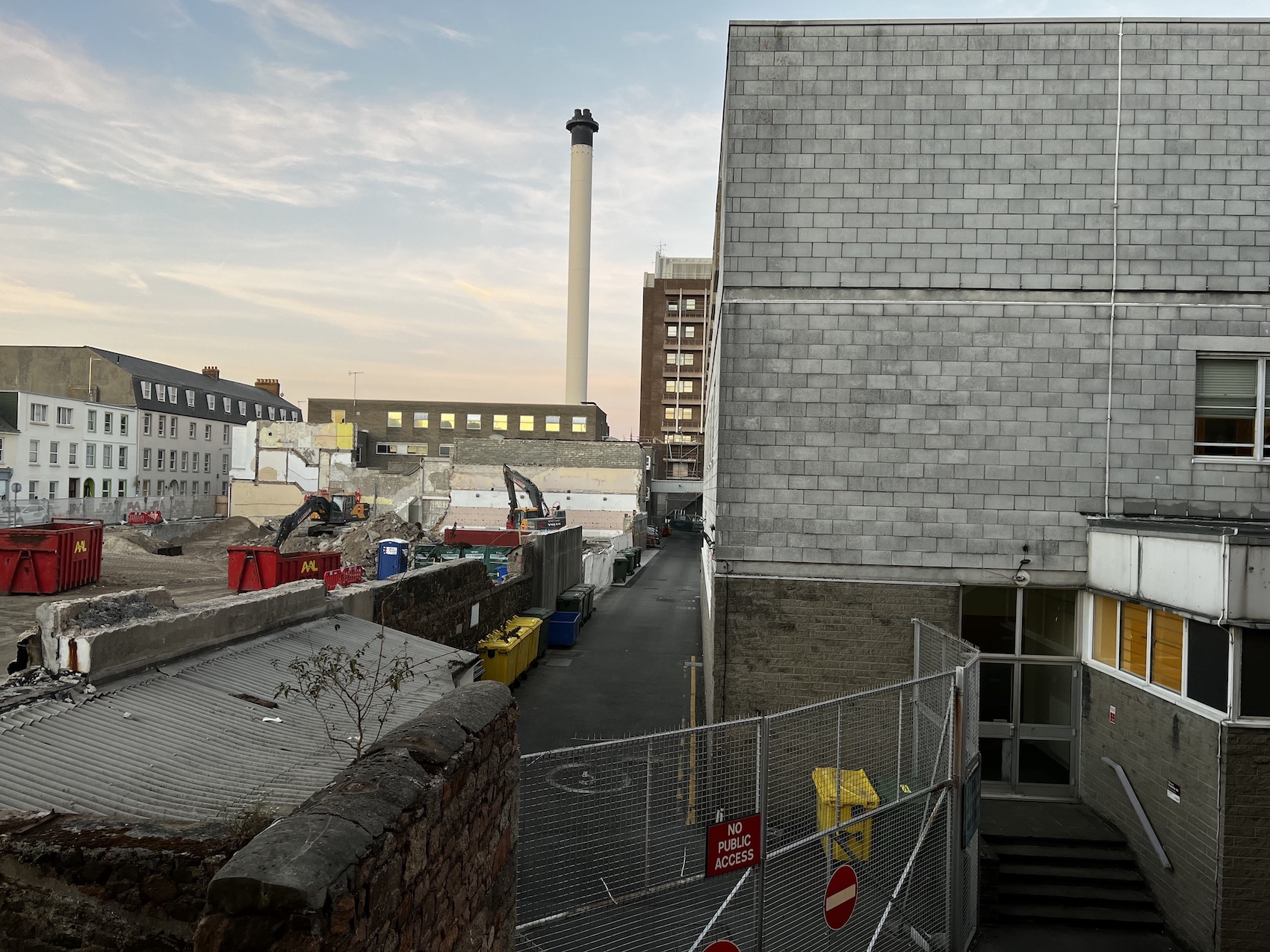


The new head of Jersey’s 8,000-strong civil service begins his nine-month term of office today.
Dr Andrew McLaughlin was appointed Interim Chief Executive Officer of the Government of Jersey in June, replacing Suzanne Wylie, who resigned in March and officially left at the end of July after 17 months in charge.
Jersey resident Dr McLaughlin is on secondment from NatWest bank, where he co-leads its ‘Commercial and Institutional’ division.
He previously was CEO at Jersey-based Royal Bank of Scotland International and has lived in the island since May 2015.
He holds a first-class degree in Economics and Politics and a PhD in Public Policy.
Dr McLaughlin’s in tray will no doubt already be overflowing, and here are just some of the things likely to be in it...
One of the challenges he is likely to face is developing his own role.
This might include reducing the number of people who report to the CEO in order to give he or she the space to think strategically.
Work on how that future role might look started in earnest after the resignation of Dr McLaughlin's predecessor, Suzanne Wylie, was announced. Ms Wylie – whose official performance targets were never set – said in her letter of notice that her departure would be an "opportunity to assess if it should be changed and to what degree".

Pictured: Suzanne Wylie suggested the role of the CEO should be reassessed.
Chief Minister Kristina Moore later asked another former head of Jersey's civil service, John Mills CBE, who is now the island's Charity Commissioner, to share his view. He suggested that the next CEO should be supported by a senior team of up to six people, including an in-house lawyer, Private Secretary and 'Cabinet Office Director'.
Meanwhile, political scrutineers are assessing how well the performance of the CEO and top civil servants is being measured.
The Interim CEO will also probably assess if more reform is needed in the newly created Cabinet Office and, further from Broad Street, whether the current structure of Government departments makes sense.
It also emerged earlier this year that the number of civil servants had grown by more than 1,000 since the launch of the 'OneGov' plan to save money and slim down the size of Government – but there were still nearly 700 vacancies at the time.

Pictured: Does the current structure of Government make sense? Dr McLaughlin may be asked to examine this.
In September 2022, Chief Minister Kristina Moore told business leaders that the Government "cannot carry on recruiting more people" and needs to "work out what we can simplify and stop doing".
Meanwhile, one of the Council of Ministers' three key areas of "relentless focus" is recruitment and retention of staff, and considering how to keep talent on-island – particularly after recently released statistics showed evidence of what's been described as a 'Bean drain', an exodus of locals and qualified islanders.
While he considers recruitment and retention, a recent ‘Be Heard’ survey of States’ employees will also give Dr McLaughlin food for thought on culture and career progression.
Around four in 10 members of the entire Government workforce – 3,800 people – responded to the anonymous survey which cost £43,000. A summary of the findings released to the media earlier this year suggested that staff believed the Government of Jersey to be a 'good' employer.
However, a breakdown by department is not due to be provided until later this year. Previously, this showed stark divides in views depending on department – Health workers were among those least satisfied, while those working in the Law Officers' Department were very happy with their working conditions and culture.
Figures released in May of this year showed that more than 300 people had departed Government in just six months, with the majority of departures within Health and Community Services.
The other two areas of "relentless focus" for the Council of Ministers – which the CEO will be expected to support – are housing and supporting islanders with the cost of living.
Official statistics released in June showed that average household income last March was £930 per week after housing costs – a 4% decrease since 2019/20. Once mortgages and rents are paid, a quarter of households were living in ‘relative low income’ – which is defined as earning £430 per week after housing costs, or £520 before.
Then, at the end of last month, data published by Statistics Jersey showed that islanders' wages had grown at the fastest rate for more than two decades – but that massive rises in the cost of living had wiped out the benefit.
Forthcoming documents that the CEO will need to grasp quickly include the soon-to-be-published Future Economy Programme, which will outline how Jersey’s economy develops between now and 2040, and the next Government Plan, which will set out public spending up to the end of 2027. The latter is expected to be published imminently.
Such cost of living pressures are behind why teachers and nurses are fighting for a better pay deal. Just this week, teaching unions, who say they have suffered a real-terms pay cut as a result of wages not keeping up with inflation over the past 15 years, announced strike action.
Now that the Les Quennevais health facility is open, Dr McLaughlin will be taking on the top job as Ministers now turn their focus to delivering an acute hospital at Overdale, with an ambition of starting work in 2025.
Ministers have also floated the possibility of buying up more properties around Kensington Place to help expand the current General Hospital.

Pictured: The current General Hospital is due to be expanded.
Getting staff on-side throughout the decision-making process is another challenge.
With Dr McLaughlin's term ending next May, Chief Minister Kristina Moore will no doubt already be thinking about the type of person who should replace him and what their responsibilities should be.
Today, Chief Minister Kristina Moore said: “We’re delighted to welcome Andrew as he begins his important role as our interim Chief Executive.
"The Government has a significant policy agenda to deliver for islanders and we will benefit greatly from Andrew’s strategic leadership experience, particularly as we seek to improve our corporate performance and systems management.
"Andrew will be introducing himself to colleagues across the public service in the coming weeks, and we are all looking forward to working with him.”
Comments
Comments on this story express the views of the commentator only, not Bailiwick Publishing. We are unable to guarantee the accuracy of any of those comments.